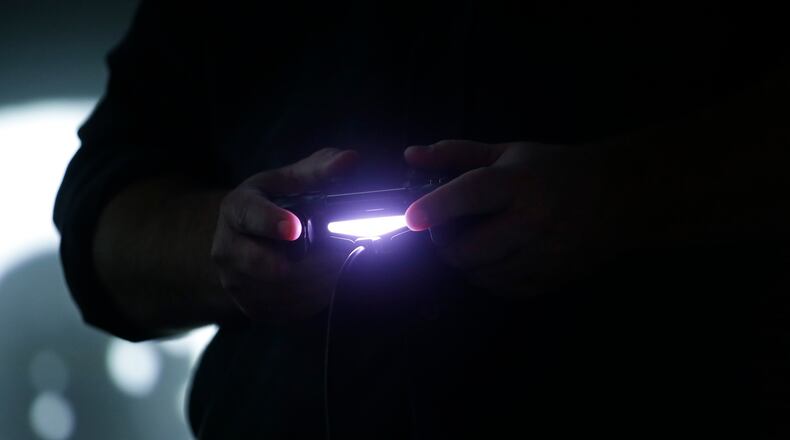Each week, five high school coaches will discuss one issue that affects Georgia high school sports. | Last week: Officiating
At Issue: Competitive gaming has evolved from a hobby in damp basements to a multi-million dollar industry featuring high school, college and professional Esports teams across the nation. Pro teams compete on ESPN's networks; fledgling college programs are offering scholarships, and high school associations, including the GHSA, are crowning state champions in various competitive video games.
What is esports? According to PlayVS, the company that conducts the GHSA esports state championships, esports is defined as follows:
“Esports officially stands for electronic sports, not to be confused with video games. It’s much more than that. What sets it apart is the level of organized competitive game-play between teams and its own strict set of rules and guidelines. Esports is about teamwork, communication, strategic thinking and leadership — in all the same ways that traditional sports are, and then some.”
The GHSA added esports in 2018 and has awarded state championships in two games: League of Legends and Rocket League. The league started with around 60 teams and grew to around 140 teams in the second year.
League of Legends, or “League” for short, is a multiplayer online battle arena (MOBA). The game requires teams to compete in matches, lasting anywhere from 20 to 50 minutes on average. In each game mode, teams work together to achieve a victory condition, typically destroying the core building (called the Nexus) in the enemy team’s base after bypassing a line of defensive structures called turrets, or towers. Rocket League, the other GHSA sanctioned esport, is a virtual vehicular soccer game. Of the two, it is more like your typical sport, where the goal is to get the ball in the net. Think soccer, but with rocket-powered RC cars.
Both games involve multiple players, require teamwork, skill, critical thinking, practice and prep.
Can we expect esports to boom at the high school level?
The Skinny: Colquitt County might not be the first place to come to mind when the subject is high school esports. But the Packer program, led by PlayVS SuperCoach Ashley Hodge, is one of the leading esports programs in the GHSA.
“I grew up in the ’90s playing video games, and I was a competitive amateur esports player,” said Hodge, who as SuperCoach assists other high school programs in all areas of the sport. “I mostly started on ‘Call of Duty,’ and then I kind of branched out. When our school announced they needed a coach for esports, I got excited. I applied. I interviewed with our board, and I got it.”
Hodge put herself through college playing competitive “Call of Duty” years before esports would have ever been considered by the GHSA. She has wide knowledge of the esports world.
Hodge: "Well, first of all, I would like to say to the naysayers that not everybody can play a physical sport. A lot of my kids have medical conditions, and they cannot play a physical sport because it could potentially kill them. I had a kid last year with like a rare heart condition, and he was all bummed out because he never got a letterman jacket. He could never get a scholarship. He could never participate in any kind of sport, because it was all physical.
“So when esports came around, he was very excited. And he was actually very good. So he got to be a part of that community. I have a lot of kids who started out very anti-social. And they have been with me in this program for three years now. So I’ve seen kids become friends and work on teamwork, communication skills and then use those skills in their academic classes. Their grades are going up because they have to maintain a certain GPA to participate.
“There’s still like a lot of push-back in Southern conservative states, because they see esports and think, ‘Well, that’s just video games. Why am I going to support a kid getting fat and being anti-social?’ ... You’ve got all this misinformation, and that does not help the spread of esports.
“When we first announced esports at Colquitt County High School, I had 400 kids show up. And I was I was by myself; I was the only coach. In my interview with the board, I pretty much had to convince them to let us have esports. When I went in, I thought that they were OK with us having it, but I did not know I was going to have to put up a defense on why we should have it. So I talked about the scholarship aspect, the teamwork-building aspect, how it can help kids in STEM classes and technology classes, because that’s the way of the future ... technologies are just it. We are in a data-driven society, and that’s where we’re going. So why would you not give these kids opportunities to develop these skills under somebody who has knowledge of it?”
AT ISSUE: esports
• Travis Noland, Oconee football coach • Penny Pitts Mitchell, GHSA esports director • Lucas Bailey, Georgia State esports coach • Ashely Hodge, Colquitt County SuperCoach • Anna Cannon, esports player’s mom » MORE: Previous topics
About the Author
The Latest
Featured

